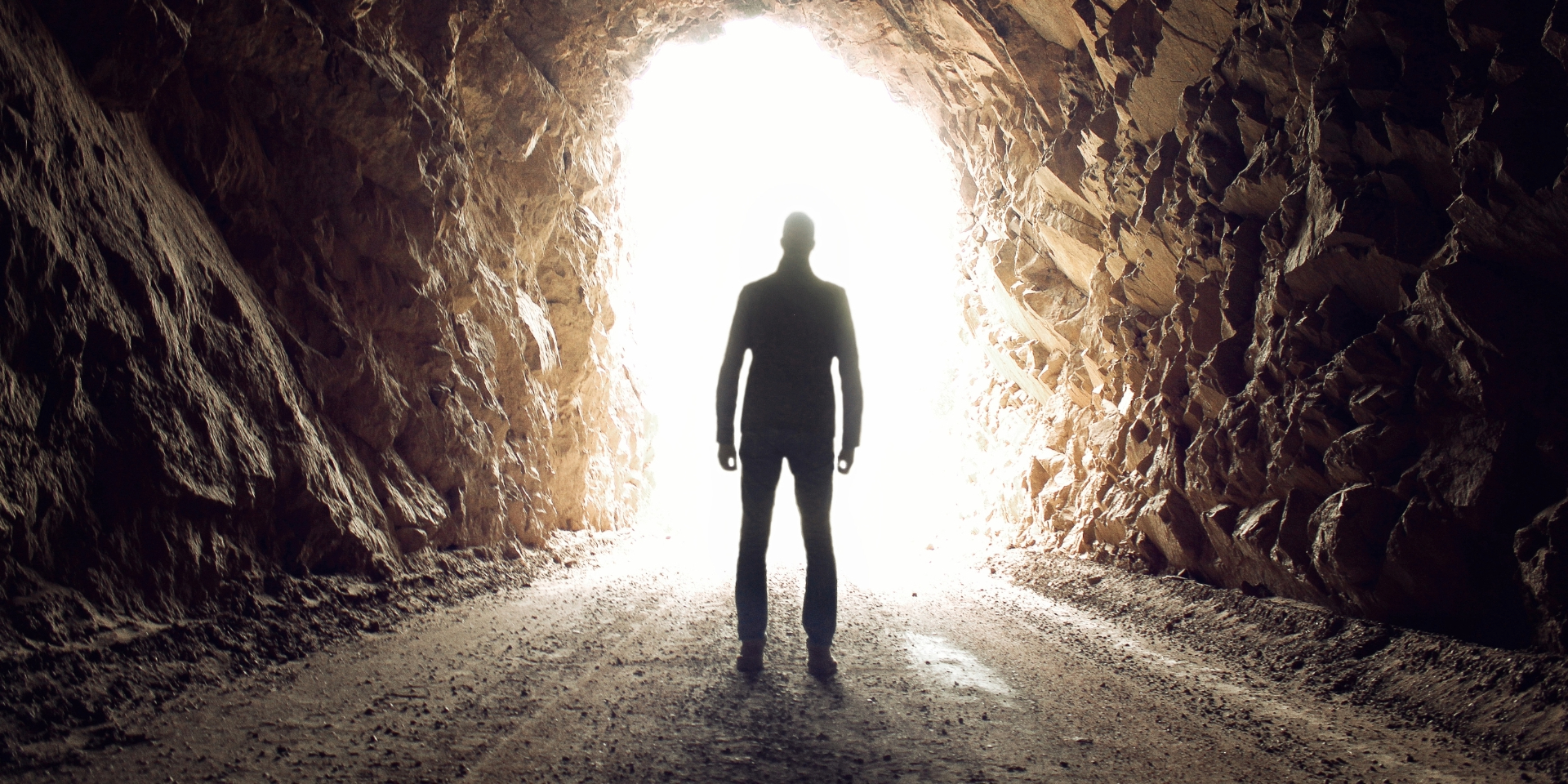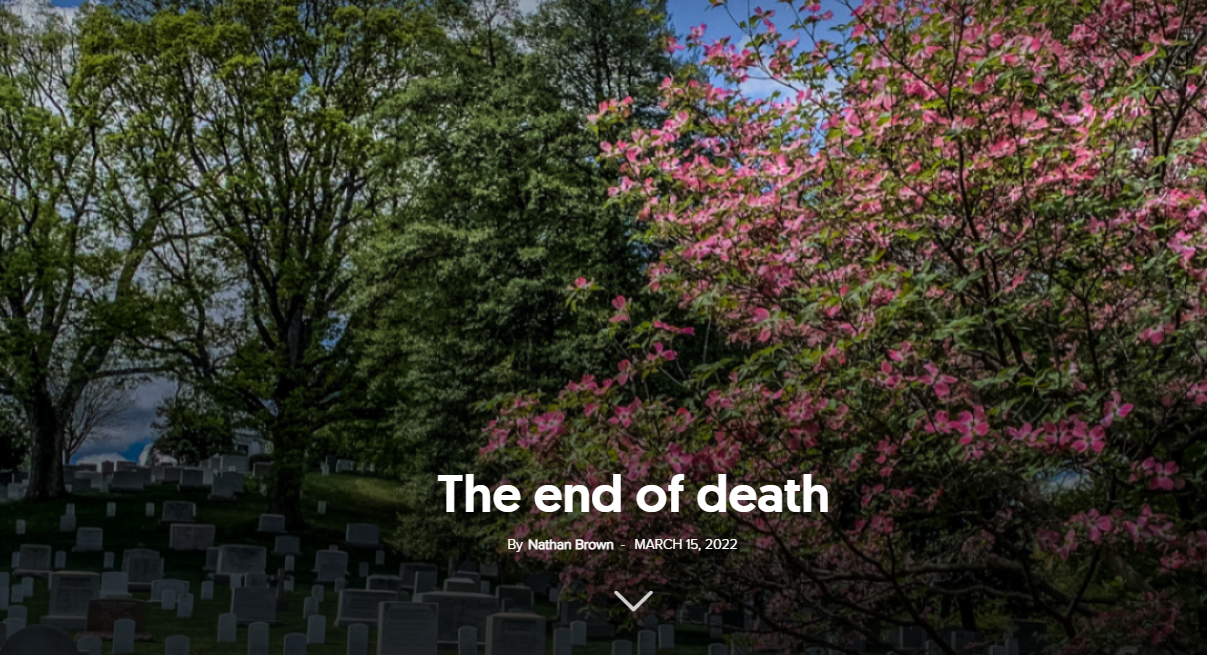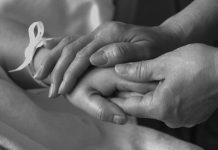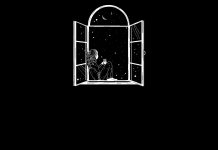“On the 5th of March 1986, life left me! I was in the process of moving and that evening I felt terribly tired and cold…” (Ruth Frikart-Moor)
Twenty-five years ago, on my first trip to America, I discovered a fascinating and disturbing field—the study of the states preceding death, the preparation for the end of life, and the behaviour towards those who are about to die. Among the authors I discovered was Dr Elisabeth Kübler-Ross, who has always been at the forefront of these concerns. Later, what are known as near-death experiences became extremely popular.
In the meantime I learned that the wife of a good friend of mine had had such an experience herself, and I had the opportunity to read her book with the intriguing title In Parentheses.[1] The big surprise came when I learned that Mrs Ruth Frikart-Moor had started an intense correspondence with Dr Kübler-Ross. This is how the idea for this interview was born.
You are one of the few people who have had a very unusual experience: you were close to death and came back to life! How do you see this experience?
We don’t have to see such a journey as something extraordinary. There are more people than you might think who have come close to death in accidents. According to a 1982 Gallup poll, about 40% of people who have cheated death remember the near-death experience. At the time, that amounted to about eight million Americans! Surprisingly, the victims of these ‘Between traumas’, for that is what we are talking about, are quite reluctant to talk about them openly. The reason for this is that these people often don’t really know what happened to them. There is also the fear of being ridiculed and accused of making things up about a very sensitive part of their lives.
As far as I’m concerned, it all happened with the utmost serenity. As a heart patient, I had had several episodes of loss of consciousness and even superficial coma, i.e. first degree coma, which is quite different from cardiac arrest or sudden death, which we are going to talk about.
On the 5th of March 1986, life left me! I was in the process of moving and that evening I felt terribly tired and cold. I glanced at the television for a few moments—enough to see a scene with the famous Commissaire Maigret and his ever-present pipe. I dressed more warmly and pulled myself up next to my husband, who was half asleep. With his eyes half open, he asked me why I was dressed like an Inuit.
I have no idea how long it had been, but after a while my husband remembered that he had forgotten to tell me something important. He touched my hand but got no response. He touched my face and again no response, no reaction. He turned on the light and asked jokingly, “Hey, Inuit, are you asleep?” But when he saw my face, he knew immediately that something serious had happened. Without thinking, he ran to the doctor who lived in the apartment below us. He immediately called the ambulance and, together with my husband, started giving me heart massage and breathing support.
No less than two weeks passed. It was the 19th of March and when nobody expected it, I opened my eyes. My husband was sitting in the chair beside my bed. Strange, I thought, when did he put on his suit? The last time I remembered him, he was in his pyjamas.
“Darling, do you recognise me?” I had the feeling that I had woken up after a tiring day and a little sleep, so the question seemed unusual. I thought it was in the spirit of my husband’s cheerfulness, so I replied with a smile, “Of course I recognise you! Hello, Commissioner Maigret! But where is your pipe?”
And you have no memories of all this time?
Nothing… except a dream, something that could well be called a near-death experience, something that I believe to have happened in the ambulance that was taking me to hospital at high speed.
How can you be so sure?
I could hear very clearly the voices of the people around me and the rocking of the vehicle. The voices were those of my husband and the doctor massaging my heart. My family and the doctor’s family also appeared in the dream. The two families had just met in a very strange place, upholstered in velvet that went from emerald green to crimson red. In this corner, a place where one felt comfortable, our only activity was to go up and down, although there were no stairs. Up and down… and down and up… We were like angels— light as feathers, dressed like princes. Marie, the doctor’s wife, was absolutely gorgeous with her long glowing hair in a sea-green tunic. Bernard, the doctor, wore a white blouse with a soft silk scarf tied loosely around his neck. Their children, Catherine and Gregoire, were also present, as well as our boys, Laurent and Dominik.
Everything was so simple, so light… and everyone seemed a thousand times happier in this colourful and incredibly bright box. Bright without being dazzling… So many colours, constantly changing, like the little rainbows that form in the drops on the side of the road after a lorry with a petrol leak has passed. It all seemed surreal, magical, sublime, and the collective sense of well-being would have suggested paradise if we hadn’t suddenly found ourselves, as if by magic, in the most earthly of places, the L’age d’or pizzeria in Geneva.
But after this wonderful dream, the following two weeks left absolutely no memories—because absolutely nothing happened. It was two weeks of total emptiness, as in non-existence. For me, that was it. For those around me it was the most intense two weeks imaginable and I was at the centre of their worries, discussions, decisions, actions, and prayers.
Do you have any memories of what happened before you woke up from that long coma?
Yes, when it was time to turn my back on death and return to consciousness, I had a somewhat similar experience again, only it was more beautiful, brighter, more “classic”. Once again I was in that space of love, experiencing a state of well-being that was unparalleled. And this time I saw the light, a circular light that gave the impression of a tunnel. A very bright and vivid light, neither warm nor cold nor blinding (in no way like the glory that surrounds God and that the Bible says no one can see).
In short, I was going through this light, this tunnel, at top speed. I can’t explain better what was going on in my brain because I’m not a doctor, a psychiatrist or even a nurse. The action—dream, illusion or hallucination, who knows?—took place this time in Africa, in Lambaréné to be precise.
On the banks of a river lined with exotic flowering trees, Marie and Bernard (them again, of course, since the doctor’s voice was one of the last sounds to penetrate my subconscious) were preparing to open a dispensary. A few reed-covered huts, an archaic irrigation system and a huge shed open on all sides. For those who don’t recognise the place, what I’ve described is an authentic copy of the pictures of the work of the musician and missionary doctor Albert Schweitzer, which I have meticulously collected since my childhood.
The sick come from everywhere. The doctor and his wife operated on stomachs and amputated legs, while their children, Catherine and Gregoire, ran around with a huge garden hose. Just then, a charming Canadian nurse woke me up by sticking a thermometer in my armpit. The disappointment was huge. I was so looking forward to seeing the continuation of this episode in three dimensions—no, four!
How do you interpret the colourful sensations and movements you experienced in these dreams?
I know I am not wrong when I say that this near-death experience was determined by what was happening in my immediate environment—the ambulance and its movements, the conversations between the doctor and my husband, and above all the “packs” of oxygen I received with each desperate manoeuvre the doctor performed on my chest. And the up-down, down-up sensations had the same starting point. All these signals were processed by a brain whose activity was altered by the lack of oxygen and the toxic substances that accumulated without being eliminated quickly enough.
I can only attribute these visions, hallucinations and so on in my head to what I call “temporary mental disturbances caused by trauma”—in my case, cardiac arrest. They are functions of the brain that are partially activated, more or less disorderly, and at certain unpredictable times—but certainly not at the moment of death.
Some of those who talk about their near-death experience claim to have left earthly life for a few moments to escape into the beyond—but they are wrong, and I would say dangerously so.
Were you aware of the work of Raymond Moody and your compatriot Elisabeth Kübler-Ross when you had these distressing experiences?
Yes, of course, long before that. I have always been interested in books, and when the media drew attention to a book, I was very keen to get to know it, to experience it. But I had already understood that the two of them were on the wrong track in their research. Reading the books they wrote did not change my perception of the subject of life and death. I was familiar with what the Bible said about the nature of life and the event of death. I had often spoken openly to my parents about such things.
I was always down to earth, never tempted to escape, to seek a mystical experience in the usual sense of the word. After what happened in March 1986, when I began to talk about my experience and my understanding of it, I realised in a painful way that my listeners were extremely disappointed. They came to me hoping with all their hearts that I would tell them something that would confirm what they had read in Raymond Moody’s books.
I have a heavy heart when I see the massacre Moody has wrought on people’s souls, starting with his first book published in 1975, the bestseller Life After Life. The thinking of millions of people has gone in a completely wrong direction. In saying this, I am aware that both Moody and especially Kübler-Ross started with a commendable aim. They were persistent researchers, and their call to take the dying seriously has had an extraordinary impact on hospital practice, on work in homes for the elderly, and on relationships in families where death is preparing to take a loved one.
Elisabeth Kübler-Ross was born in 1926 in Zurich, where she graduated from medical school in 1957. The following year she went to the United States where she continued her studies in psychiatry and psychoanalysis. In 1969, after intense experiences with people of various ages who were dying, she published her first book, On Death and Dying,[2] in which she also proposed a revolutionary theory of the five psychological stages preceding death for those who know their condition. She encouraged an honest and loving attitude towards the dying and organised hospices to provide dignified and humane conditions for the dying (Hospice Movement).
She became increasingly interested in out-of-body experiences, spiritual communication, and reincarnation. Her studies and activities broke new ground, but also generated intense controversy. She died in 2004 at her home in Scottsdale, Arizona.
Raymond Moody, born in 1944, is a well-known American doctor, psychologist, professor, and author. His most widely published book, Life After Life,[3] is a compilation of a large number of so-called near-death experiences, on the basis of which he formulates, in terms that claim to be scientific, the belief that phenomena of perception, consciousness, and creativity exist after death. Moody believes that he has lived nine other lives before his current one.
Can you tell us if these readings have disturbed or confused you?
I read a lot and I am well aware that for a person who does not have a biblical basis for what they believe about life, death, and the afterlife, some readings can be confusing and even dangerous. But for a Christian who is well grounded in faith in Jesus Christ, it is something else entirely. For the discussions I have, it is necessary to know what is written and what influences people’s thinking.
A few years ago you managed to get into a sustained correspondence with Dr Elisabeth Kübler-Ross and even published letters to her…
Yes, it was one of the most overwhelming experiences of my life. After several strokes, she could no longer write. But she expressed herself with an amazing ease, so after I wrote to her we talked a lot on the phone. She lived for many years in Scottsdale, Arizona, where I had the privilege of visiting her a few times. Elisabeth was a very capable woman, cultured, authoritative, and aware of her status, so it took a lot of patience to get close to her, and to earn her trust without giving the impression that I was trying to lecture her. In my long letters I often included little studies of biblical theology on the nature of mankind, creation, death, and resurrection. It wasn’t until my third visit that I gave her a Bible in German. I can only trust that God continued what I had tried to do for her. I also maintained a close relationship with her family in America and Switzerland.
How has the chance God gave you to live after being so close to death affected you?
My spiritual life has taken on a new meaning, a sense of urgency, an obligation to take life seriously. When you go through an unexpected situation, you understand better the value of the time entrusted to you and you want to no longer waste it. In addition, I am overcome by a boundless gratitude that irresistibly drives me towards those around me.
Little by little, I became more and more known and sought after by all sorts of people—nurses, psychologists, religious and non-religious people. I tried to respond to everyone—either in writing, by telephone or in a personal meeting. But, as I said, people were terribly disappointed. All they wanted to hear from me was what they were used to from Raymond Moody’s and Elisabeth Kübler-Ross’s books, lectures, and television programmes. At best, they explained my complete lack of these accounts by saying that my prolonged state of deep coma had left me without certain faculties.
It’s very hard to fight prejudice, especially in a field so charged with strong emotions. But I won’t give up. Someone has to go against the tide, and I believe that the experience I’ve had and the privilege of knowing the clear message of the Bible first hand creates an obligation for me to speak, to write, to expose the errors, and to invite people to believe in God.
Thank you for your openness and courage in sharing such a personal part of your life. I wish you every success in your efforts to overcome prejudice so that the simple and clear truth of the Bible can be understood and accepted.
Note: This is an interview by Adrian Bocaneanu. The transcript of the interview has been edited for brevity and clarity.




















